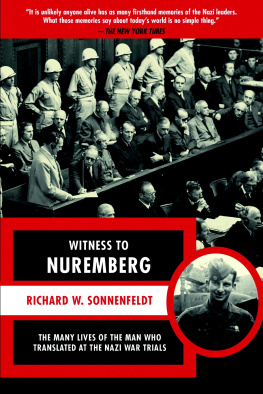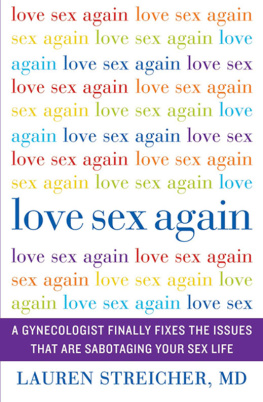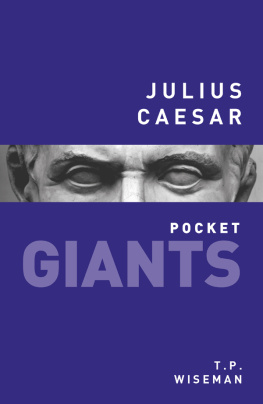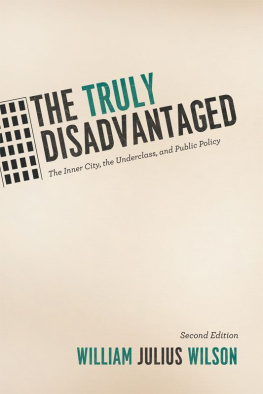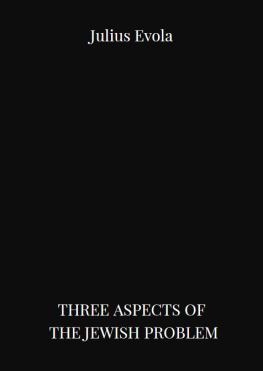Streicher Julius - Julius Streicher Nazi editor of the notorious anti-semitic newspaper Der Stürmer
Here you can read online Streicher Julius - Julius Streicher Nazi editor of the notorious anti-semitic newspaper Der Stürmer full text of the book (entire story) in english for free. Download pdf and epub, get meaning, cover and reviews about this ebook. City: New York;NY, year: 2001, publisher: Cooper Square Publisher;Cooper Square Press, genre: Non-fiction. Description of the work, (preface) as well as reviews are available. Best literature library LitArk.com created for fans of good reading and offers a wide selection of genres:
Romance novel
Science fiction
Adventure
Detective
Science
History
Home and family
Prose
Art
Politics
Computer
Non-fiction
Religion
Business
Children
Humor
Choose a favorite category and find really read worthwhile books. Enjoy immersion in the world of imagination, feel the emotions of the characters or learn something new for yourself, make an fascinating discovery.

- Book:Julius Streicher Nazi editor of the notorious anti-semitic newspaper Der Stürmer
- Author:
- Publisher:Cooper Square Publisher;Cooper Square Press
- Genre:
- Year:2001
- City:New York;NY
- Rating:4 / 5
- Favourites:Add to favourites
- Your mark:
- 80
- 1
- 2
- 3
- 4
- 5
Julius Streicher Nazi editor of the notorious anti-semitic newspaper Der Stürmer: summary, description and annotation
We offer to read an annotation, description, summary or preface (depends on what the author of the book "Julius Streicher Nazi editor of the notorious anti-semitic newspaper Der Stürmer" wrote himself). If you haven't found the necessary information about the book — write in the comments, we will try to find it.
Streicher Julius: author's other books
Who wrote Julius Streicher Nazi editor of the notorious anti-semitic newspaper Der Stürmer? Find out the surname, the name of the author of the book and a list of all author's works by series.
Julius Streicher Nazi editor of the notorious anti-semitic newspaper Der Stürmer — read online for free the complete book (whole text) full work
Below is the text of the book, divided by pages. System saving the place of the last page read, allows you to conveniently read the book "Julius Streicher Nazi editor of the notorious anti-semitic newspaper Der Stürmer" online for free, without having to search again every time where you left off. Put a bookmark, and you can go to the page where you finished reading at any time.
Font size:
Interval:
Bookmark:
JULIUS
STREICHER

Julius Streicher (far left) and Adolf Hitler at the 1927 Nuremberg Rally.
STREICHER
Newspaper Der Strmer
by Randall L. Bytwerk
with a new afterword

First Cooper Square Press Edition 2001
This Cooper Square Press paperback edition of Julius Streicher is an unabridged republication of the edition published in New York in 1983, with fifty textual emendations and the addition of a new afterword by the author. It is reprinted by arrangement with the author.
Copyright 1983 by Randall L. Bytwerk
New afterword copyright 2001 by Randall L. Bytwerk
All rights reserved.
No part of this book may be reproduced in any form or by any electronic or mechanical means, including information storage and retrieval systems, without written permission from the publisher, except by a reviewer who may quote passages in a review.
Published by Cooper Square Press
An Imprint of the Rowman & Littlefield Publishing Group
150 Fifth Avenue, Suite 817
New York, New York 10011
Distributed by National Book Network
Library of Congress Cataloging-in-Publication Data
Bytwerk, Randall L.
Julius Streicher : Nazi Editor of the notorious anti-Semitic newspaper Der Strmer / Randall L. Bytwerk.1st Cooper Square Press ed.
p. cm.
Originally published: New York : Stein and Day, 1983.
Includes bibliographical references and index.
ISBN: 978-0-8154-1156-7
1. AntisemitismGermany. 2. Streicher, Julius, 18851946. 3. Strmer. 4. GermanyEthnic relations. I. Title.
DS146.G4 B98 2001
305.892'4043dc21
2001028990
 The paper used in this publication meets the minimum requirements of American National Standard for Information SciencesPermanence of Paper for Printed Library Materials, ANSI/NISO Z39.481992.
The paper used in this publication meets the minimum requirements of American National Standard for Information SciencesPermanence of Paper for Printed Library Materials, ANSI/NISO Z39.481992.
Manufactured in the United States of America.
TO
Sharon Van Haitsma Bytwerk,
Heavens last best gift,
my ever new delight
Illustrations between
Why did the Germans kill six million Jews? There are dozens of books on what one might call the technology of the Holocaust, the operation of the death camps, but far fewer on the forces that led a civilized nation to commit, condone, or ignore genocide. Most Germans, of course, had no part in the death camps, indeed did not know that Jews were being annihilated by the millions. Yet almost all Germans had seen the intensifying persecution of the Jews that began in 1933. Few Germans had protested. Few Germans had been interested in knowing where all the Jews had gone.
This book looks at part of what persuaded Germans to stand by while their Jewish fellow citizens were persecutedthe anti-Semitic propaganda of Julius Streicher, World Jew-baiter No. 1, the most vicious and prolific of the Nazi anti-Semites. Streicher and his like did not persuade all or even most Germans to hate Jews. But they did establish an attitude of indifference toward Jews without which the Holocaust could not have occurred.
I owe thanks to many people who have helped me to write this book. Professor Robert D. Brooks first interested me in the subject and has given much help over the years. Professor David Zarefsky had valuable advice. Northwestern University and Southern Illinois University at Carbondale gave travel support. My colleagues of the Department of Speech Communication at SIU made my work easier by their example and good cheer. The book was finished during a sabbatical semester provided by Southern Illinois University.
Librarians and archivists have made their usual quiet but essential contributions. I owe particular thanks to the splendid staff at the Wiener Library, and to the late Dr. Arnd Mller of Nuremberg, whose guide to the Strmerarchiv saved me much work. The Hoover Institution at Stanford University provided many of the illustrations. Jim Jennings helped out with photography.
The editors of the Wiener Library Bulletin and Journalism History gave permission to incorporate material into this book that originally appeared in their journals, and the editor of the Christian Vanguard allowed me to use material from his newspaper.
JULIUS
STREICHER
Anti-Semite
Julius Streicher was the seventh of ten Nazi war criminals to hang on the morning of October 16, 1946. All had been among the most powerful and dangerous of Hitlers agents in Germanys war against the world. Streicher remained loyal to the end. Only he shouted the old cry Heil Hitler! as he neared the gallows. On the platform, glaring at the Allied press correspondents gathered to watch the hangings, he yelled Purim Festival 1946!referring to the biblical Book of Esther, which describes how Haman was executed on the gallows he had intended for the Jews. The Bolshevists will hang you one day, he added as final preparations were made. His body was cremated with those of the other Nazi leaders and the ashes, ironically under the cover name Abraham Goldberg, were scattered into a small stream near Munich.
He had been among the most despicable men of the Nazi movement, scorned and hated by the broader world and even by many of his fellow Nazis. For twenty-five years he had hated the Jews. Called World Jew-baiter No. 1, the biggest bigot in the world, and the high priest of stupidity, Streichers weekly newspaper Der Strmer had been devoted entirely to rousing racial hatred. It had been one of the most widely circulated papers in Germany, the one paper Hitler himself claimed to read from cover to cover. The Allies brought him to trial not because of his central role in the Nazi government or because of any direct part in implementing the Holocaust, but because in the words of the indictment his propaganda had left a legacy of almost a whole people poisoned with hate, sadism, and murder. Others had carried out the Holocaust; Streicher had prepared the ground.
Julius Streichers early life hardly suggested that he would die universally despised. Born on February 12, 1885, in Fleinhausen, a small village fifteen miles west of the Bavarian town of Augsburg, he was the ninth child of the village schoolmaster. An ill-paid man with so large a family could scarcely support it easily, but Streichers memories of his childhood were happy. His mother, whom he later called the fortress of my childhood, cheerfully accepted the view that women should be concerned with children, kitchen, and church, a model of what the Nazis were later to urge on all German womanhood. Herr Streicher, a firm father, had the respect and admiration of his children, it seems, since five of his seven surviving children followed him into the teaching profession.
The rural village in which Streicher grew up was strongly Catholic. Its citizens were poorly educated men and women with no false confidence in human nature. Jews were not often seen, but the villagers thought they knew a great deal about them. Generations of rumor and myth had made Jews into mysterious and dangerous creatures, capable of the worst behavior. Early in his life Streicher absorbed the prevailing anti-Semitism. When he was five his mother ordered fabric from a Jewish shop in a neighboring town; on delivery, the fabric was adjudged of inferior quality. That, Streichers mother told her son in tears, was just like a Jew. The village priest in his regular periods of religious instruction in the school explained how the Jews had fought Christ bitterly, finally crucifying him. That was my first inkling that the nature of the Jews was peculiar, he later wrote. These incidents, and surely there were others, did not make Streicher the blustering anti-Semite he would become, but they helped to establish the foundation for his Jew-baiting career.
Next pageFont size:
Interval:
Bookmark:
Similar books «Julius Streicher Nazi editor of the notorious anti-semitic newspaper Der Stürmer»
Look at similar books to Julius Streicher Nazi editor of the notorious anti-semitic newspaper Der Stürmer. We have selected literature similar in name and meaning in the hope of providing readers with more options to find new, interesting, not yet read works.
Discussion, reviews of the book Julius Streicher Nazi editor of the notorious anti-semitic newspaper Der Stürmer and just readers' own opinions. Leave your comments, write what you think about the work, its meaning or the main characters. Specify what exactly you liked and what you didn't like, and why you think so.

